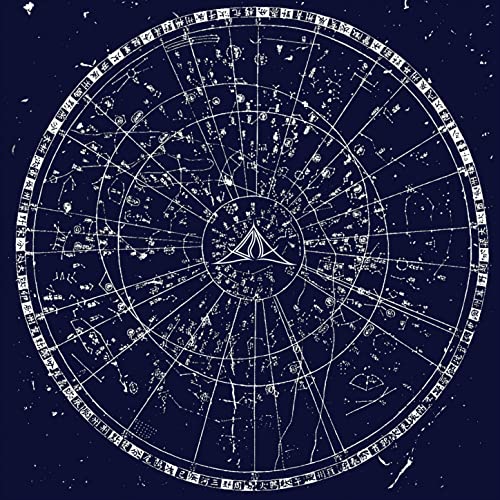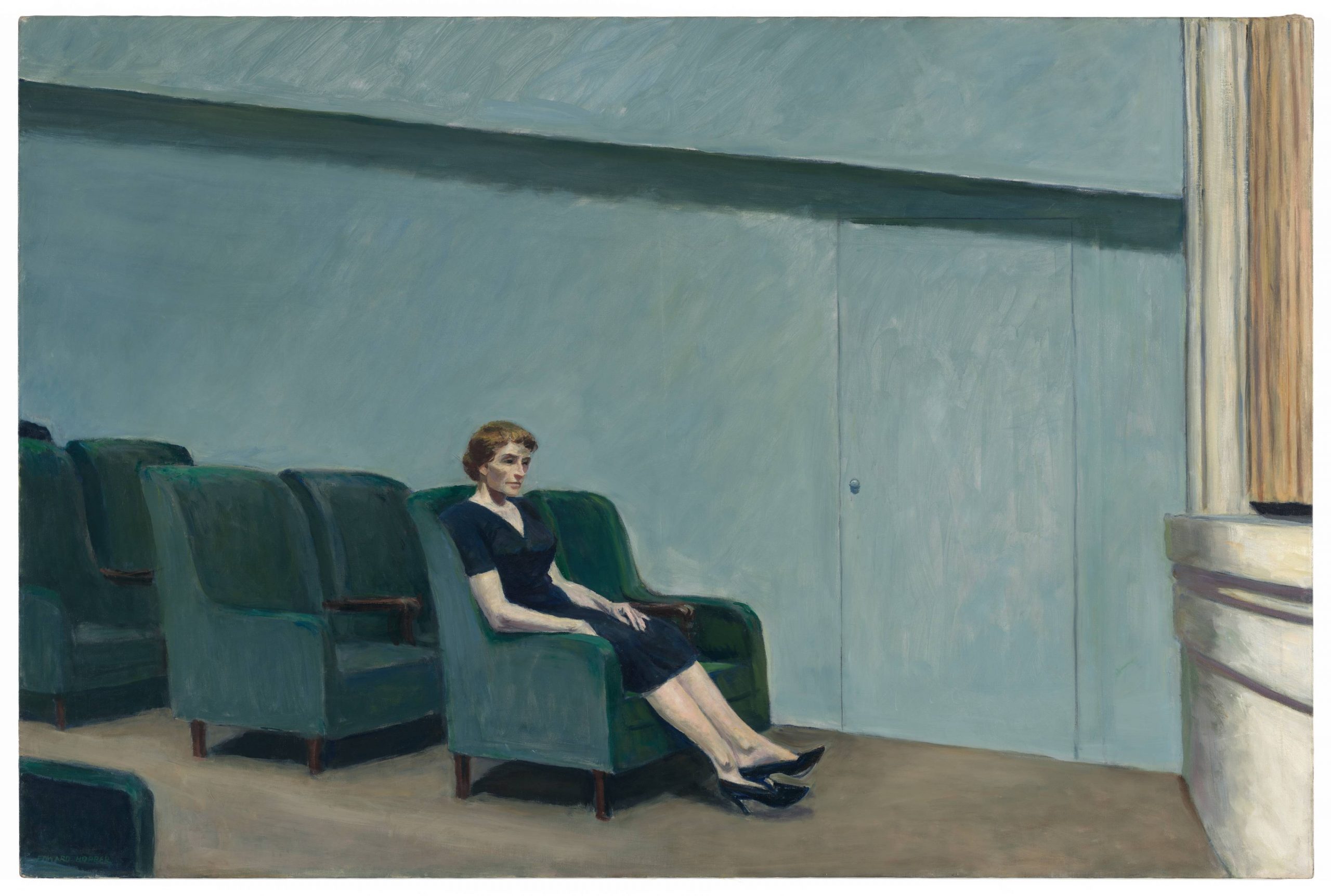In our end is our beginning.
I Know Why the Caged Man Tweets

Now more than ever, there is no way to solve the problem of men.
What is the predicament of the online man today? A clue to the answer begins with “aesthetics.” Characteristically aesthetics, even now, is treated as having to do with beauty. Aesthetics is taken to be the high practice of cultivating the beautiful so it is beheld.
Actually aesthetics comes from the Greek word meaning simply to perceive. The conclusion that the beautiful is the best thing to perceive (which in turn assumes that “the beautiful” is a thing) arises from a separate train of thought, one not necessarily connected at all with perception.
What is it about beauty that justifies beholding it—not “in and of itself,” but as an alternative to perceiving, and, yes, doing, other things?
Is beauty not an iron cage? A trap? Holding who back from what?
Or approach the matter in this way: what is so trap-like about the online discourse today?
Much of what’s online runs on a currency of respect. Certainly the tribute of respect paid to another worthy of one’s respect arouses an aesthetic experience—a perception of reality—that expresses within it something beautiful in the sense of being fitting, pleasing, and complete.
Certainly this phenomenon exists in a particular way between men, even if it is nowadays rarely discussed out loud. But engagement in “the discourse” at the highest level means winning respect by forcing those who do not respect you to compete with you, “against their will,” so to speak.
This aesthetic experience, this perception of reality, is one that ought to be revolting, not just in its general sadomasochism but in its specific elevation of what I think of as the “soy troll” character to the heights of intellectual prestige.
The premise of male competition is respect. Take away respect and competition collapses into outward conflict, inner brooding, or both. Men online who refuse to compete with those they don’t respect face what at first appears to be an aesthetic fork in the road: lash out or retreat inward. But in fact it is more of a circuit. Followers of Rene Girard will detect once again the imitative predicament at the heart of their teacher’s work. Tocqueville’s depiction of the dysfunctions of the democratic soul expresses a fundamentally Augustinian understanding of our unceasing oscillation between feverish outwardness and bitter brooding. Achilles split his time between living in the tent and crushing fighters like bugs. There are many such cases of insight into the male predicament. Men are a problem.
The problem men are is exacerbated by being put on lockdown—into the trap of “the discourse” and the somewhat different but affiliated trap of coronavirus quarantine. Many good aesthetic accounts run by energetic enough men online are busy every day swirling around the intensification of the male predicament wrought by these double cages. To an important degree, digital technology is offering new ways of gathering into associations that can permit men to confront the predicament together… or even to afford to confront it as “events unfold.” But those who know such things know too that this digital release mechanism ultimately points portentously back toward the real world, the incarnate world, the world as it must be perceived, not as it might be imagined. There, the male predicament prowls the savannah.
The West threw the kitchen sink at the problem of men. We tried everything: sublimating all spirit into the contemplation of formal perfection, requiring all heroes to kneel at the feet of one empire, abasing all things of the body in the name of True God or True Knowledge, turning men into crusade fodder, state fodder, market fodder, history fodder, making one’s wits or one’s wit the true mark of a gentleman, eliminating ethical and political limits on science, encouraging men to be feminine, to be “dads”, to remain boys, you name it, we tried it.
Where has it gotten us? Anywhere? Aesthetics?
It is now easy to perceive how our era of digital technology can disenchant all the illusions and distractions formerly used to divert male energy away from reckoning with the problem of men always itching at us to be reckoned with.
How long can a man sit at home before he goes crazy?
We are testing out that proposition on a scale that has never been tried, on a historic worldwide level. Bachelors, fathers, anywhere in between—how much can you do from home without losing your mind, your control? If all there is left to do boils down to fruitless entertainments?
There’s less of a point than ever in becoming engrossed at home in fantasies, tales, pastimes, games of any kind, even physical pleasures, yes, including lifting weights. Digital technology has taken the plausibility out of “escapism.” Its reduction of all artefacts of the imagination to scraps of content bound for the great archival dump in the cloud leaves us painfully aware that we are being forced into a kind of early retirement, a putting out to pasture. Epicureanism no longer feels like being king for a day.
Those of a certain age will object that they’ll be in the ground soon enough anyway, so leave them in peace and respectfully, thank you. Or that they are after all just boys still. But this has never been a solution to the problem of men. Men are a problem because there is no solution.
And trying to “get rid of them” has only made the problem worse: even after all our struggling and propaganda it won’t go away.
But it has pushed men into feeling as if the dam that must soon burst, spilling big male energy back into the world, will create a mighty river on which the right kind of helmsman can take a shortcut to sweet relief from the ugly aesthetic experience of being trapped and knowing it. An aesthetic will rise, hoisted aloft by a Cosmic Chad… so commanding a command performance will be performed that the trap will be sprung, men will be able to be men again, justified by their role in completing a fitting, pleasing whole!
Maybe.
But for a man to “finally” be a man is not a ticket to heaven on earth, however “high” the highs. No setting for men is really paradise. The problems of men—the unsatisfactory or incomplete quality of male violence and peace, struggle and rest, power and passivity—have no solution, not in science, economics, culture, religion, politics, or aesthetics. There are only works of amelioration and forbearance.
Men must kneel before nature no less than God. Even at their most uncaged, men must be humbled in this way. They must keep at it, no matter how unaesthetic in any sense the keeping on may be. The alternative Nietzsche ridiculed well enough: a little poison, that makes for a good life; a lot of poison, that makes for a good death!
But the superman is ridiculous too. All dreams, no matter how salutary, are. Men should not be dreamers, least of all dreamers of “ultimate” dreams.
Men singing out from within their cages, online and off, will not be freed by anyone’s “aesthetic performance”—at least not in the most broadly theatrical sense. The proper original meaning of performance was to be in completion of an act. To perceive properly enough to bring one’s acts to completion—this quotidian yet cosmic competence, on the field outside the cages of one’s dreams and one’s heart, is what brings men together in a reality of respect. Even now—especially now.
Respect, though—even respect is not enough for men, problematic men. They’ll have spice, damn it. Without that little something to quicken the pulse, even mutual admiration loses its savor. Life in some sense, their life, must ultimately be at stake.
Digital technology is wiping away a lot of illusions about how symbolic or abstract the stakes can be and still deliver the spice. That puts a special premium on places in the natural world where the spice can be found, can be hunted and from time to time feasted on. These places are not resorts or amusement parks, and they can’t be built as if they were. Wherever they may be, you can count on the fact that men who are able to get there will try to do so, no matter how little permission they are given.
And after a while, many of them will fall deeply in love what surrounds them—even, or perhaps especially, if it isn’t strictly beautiful.
The American Mind presents a range of perspectives. Views are writers’ own and do not necessarily represent those of The Claremont Institute.
The American Mind is a publication of the Claremont Institute, a non-profit 501(c)(3) organization, dedicated to restoring the principles of the American Founding to their rightful, preeminent authority in our national life. Interested in supporting our work? Gifts to the Claremont Institute are tax-deductible.
Does Curtis Yarvin understand Aesthetics?
A city of heaven returns to our barren earth.
New artifacts overthrow old impostures.
America’s aesthetic movements must resist commodification.





